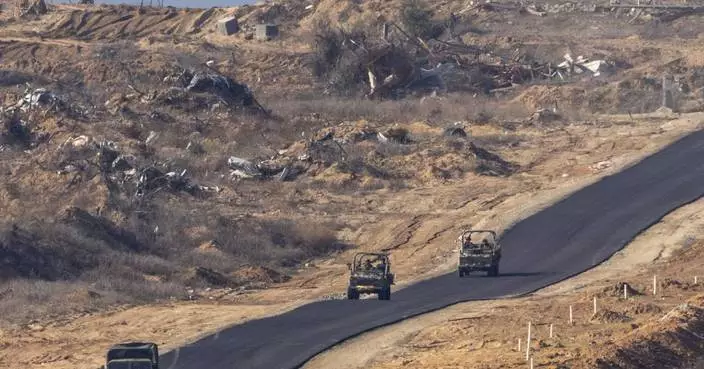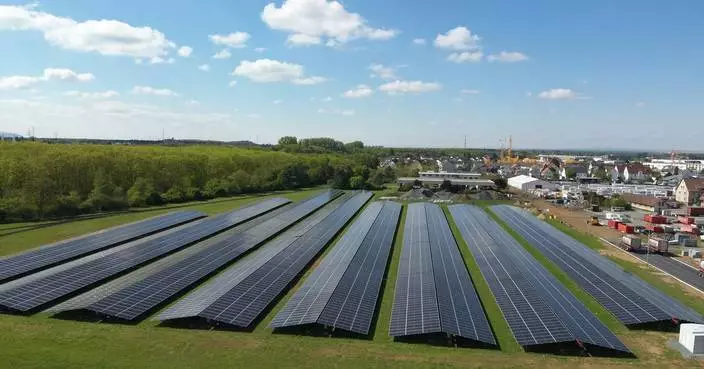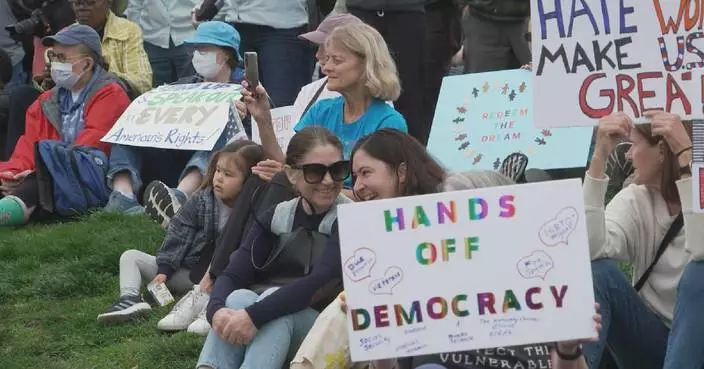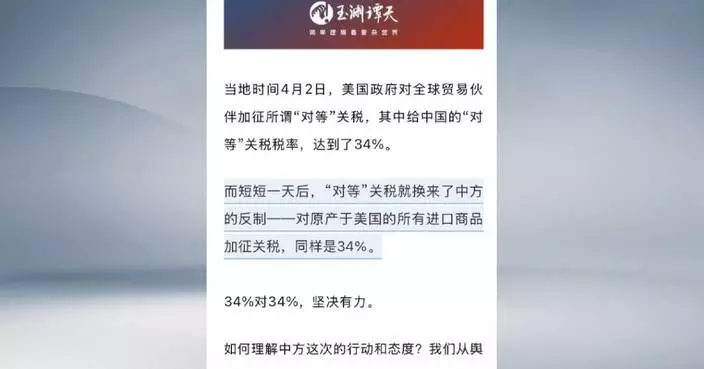PONTIAC, Mich.--(BUSINESS WIRE)--Mar 31, 2025--
UWM Holdings Corporation (NYSE: UWMC) (“UWMC,” or the "Company"), has named Rami Hasani as its new Chief Financial Officer. Mr. Andrew Hubacker will be moving into a senior advisor role effective April 1, 2025.
This press release features multimedia. View the full release here: https://www.businesswire.com/news/home/20250331220952/en/
Mr. Hasani will assume the position effective April 1, 2025, and will oversee all financial aspects of the company including accounting, internal and external reporting, financial compliance, tax, treasury and liquidity management, and budgeting and forecasting. Mr. Hasani originally joined the company in November of 2020 as Vice President, Financial Reporting & Compliance.
"We are thrilled to announce Rami's transition into the role of CFO, a position he has rightfully earned through the confidence of myself, our leadership team and the entire organization,” said President and CEO, Mat Ishbia. “Since joining UWM in 2020, he has been a valuable part of our team, and we have no doubt he will continue to make a significant impact in this new role. We also extend our gratitude to Andrew for his many contributions as our CFO and appreciate his continued expertise in his new role as a senior advisor."
Prior to joining the Company, Mr. Hasani spent over 15 years at Deloitte & Touche, LLP, most recently serving as a Senior Manager in the Advisory practice. Mr. Hasani holds a B.S. degree from Oakland University in accounting and has been a Certified Public Accountant since 2004.
“I am honored to step into this new role and grateful for the trust placed in me,” said Rami Hasani. “Having grown with this company over the last 4.5 years, I’ve seen firsthand the dedication and innovation that drive our success. I look forward to building on our strong financial foundation and working alongside our talented team to achieve even greater success.”
About UWM Holdings Corporation and United Wholesale Mortgage
Headquartered in Pontiac, Michigan, UWMC is the publicly traded direct parent of UWM Holdings. United Wholesale Mortgage is the nation’s largest home mortgage lender by closed loan volume. United Wholesale Mortgage has been the largest wholesale mortgage lender in the nation by closed loan volume for ten consecutive years and is the largest purchase lender in the nation by closed loan volume. With a culture of continuous innovation of technology and enhanced client experience, United Wholesale Mortgage leads the market by building upon its proprietary and exclusively licensed technology platforms, superior service and focused partnership with the independent mortgage broker community. United Wholesale Mortgage originates primarily conforming and government loans across all 50 states and the District of Columbia.


UWM Holdings Corporation appoints Rami Hasani Chief Financial Officer
DUBAI, United Arab Emirates (AP) — Middle East stock markets tumbled Monday as they struggled with the dual hit of the United States' new tariff policy and a sharp decline in oil prices, squeezing energy-producing nations that rely on those sales to power their economies and government spending.
Benchmark Brent crude is down by nearly 15% over the last five days of trading, with a barrel of oil costing just over $63. That’s down nearly 30% from a year ago, when a barrel cost over $90.
That cost per barrel is far lower than the estimated break-even price for Saudi Arabia and most other countries producing energy in the Middle East. That's coupled with the new tariffs, which saw the Gulf Cooperation Council states of Bahrain, Kuwait, Oman, Qatar, Saudi Arabia and the United Arab Emirates hit with 10% tariffs. Other Mideast nations face higher tariffs, like Iraq at 39% and Syria at 41%.
“With these measures and the expected retaliatory measures that could be adopted by other countries, the stability and predictability of international trade could be undermined,” the accounting firm PwC said in an advisory to its Mideast clients.
The Dubai Financial Market exchange fell 6% after it opened for the week, with market leader Emaar Properties down 9%. The Abu Dhabi Securities Exchange fell 4%.
Markets that opened Sunday saw losses as well. Saudi Arabia's Tadawul stock exchange fell over 6% in trading then, with further losses of 3% after opening Monday. The giant of the exchange, Saudi Arabia's state-owned oil company Aramco, fell over 5% on its own on Sunday, with more losses Monday, wiping away billions in market capitalization for the world's sixth-most-valuable company.
The drop in Aramco, whose shares also power Crown Prince Mohammed bin Salman's expansive plans to reshape the kingdom's economy, ties directly back to the overall price of oil.
Last week, OPEC+ members Algeria, Iraq, Kazakhstan, Kuwait, Oman, Russia, Saudi Arabia and the UAE agreed to speed up the introduction of more oil into the market. This month marks the first oil production increase by the group since 2022.
“OPEC+ has shifted its market management strategy from a steady incremental increase in output to monthly announced targets, bringing forward higher output levels for May this year,” an analysis published Monday by the state-majority-owned Emirates NBD Bank of Dubai said. “That will leave oil markets grasping with additional volatility as they assess the negative impact on global trade of the tariffs announced by the Trump administration.”
The Qatar Stock Exchange fell over 4% Sunday and a further 2% as trading resumed Monday. Boursa Kuwait fell over 5% on Sunday, with slight losses again Monday.
The Pakistan Stock Exchange fell rapidly Monday, with Islamabad facing 29% tariffs from the U.S. The exchange suspended trading for an hour after a 5% drop in its main KSE-30 index.
"We may face this situation until the uncertainty ends at the global market,” said Mohammed Sohail, the chief executive at Topline Securities.
Pakistan’s Finance Minister Muhammad Aurangzeb said over the weekend that Islamabad will send a delegation to the United States soon to negotiate. The U.S. imports around $5 billion worth of textiles and other products from Pakistan, which heavily relies on loans from the International Monetary Fund and others.
Associated Press writer Munir Ahmed in Islamabad contributed to this report.
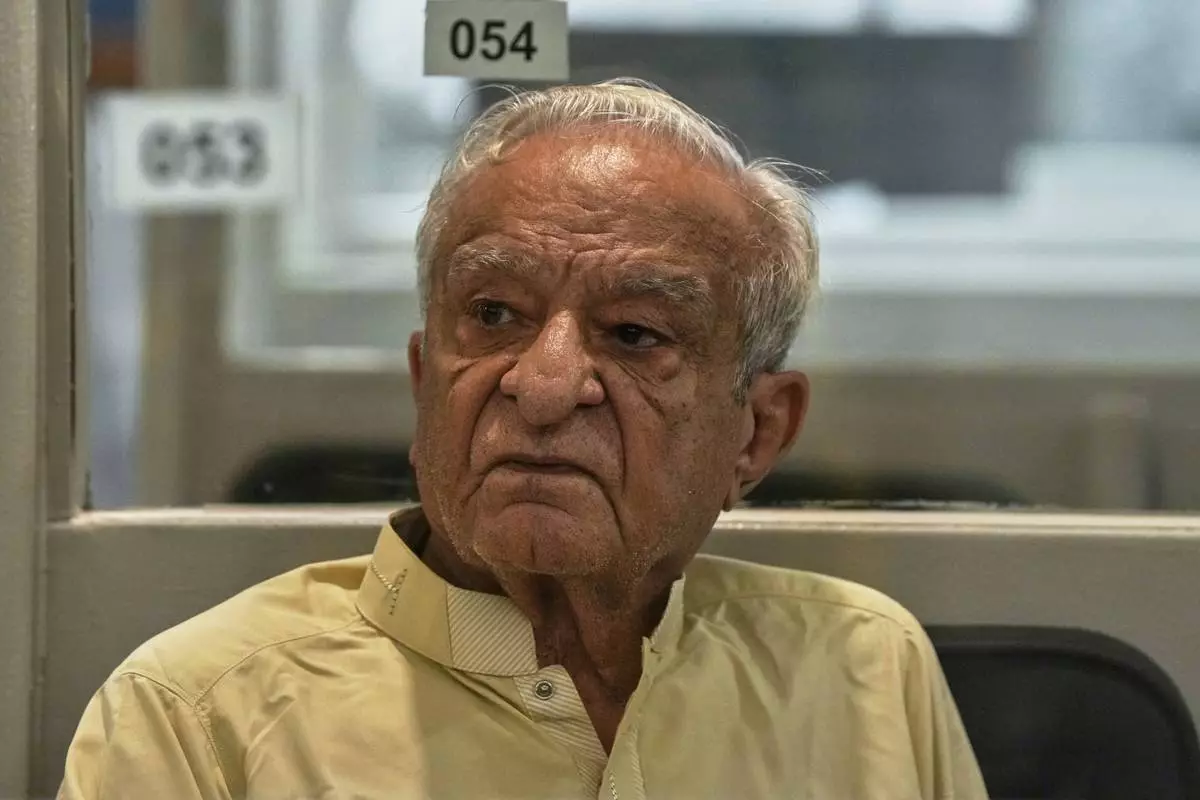
A dejected investor waits to restart trading, which suspended for an hour following a 5% drop in in its main index at the Pakistan Stock Exchange (PSE), in Karachi, Pakistan, Monday, April 7, 2025. (AP Photo/Fareed Khan)
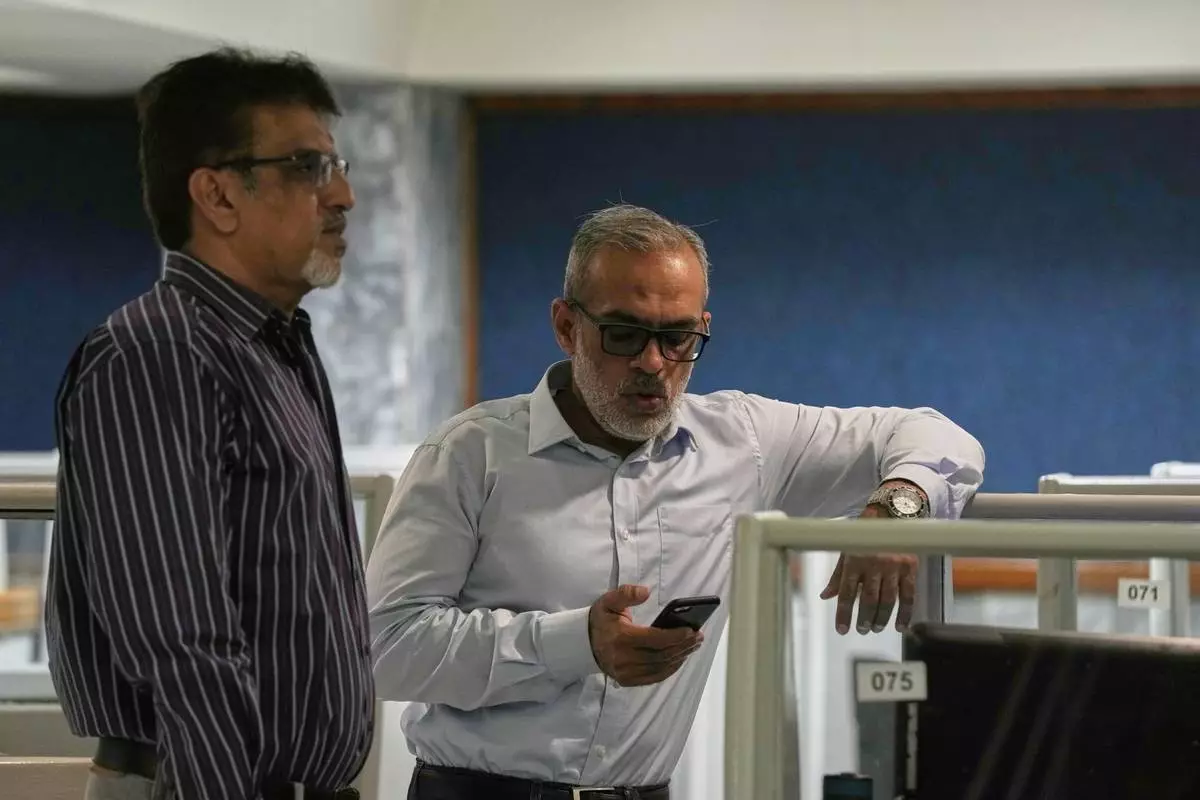
Stock brokers discuss the situation at the Pakistan Stock Exchange (PSE), after trading suspended for an hour following a 5% drop in in its main index, in Karachi, Pakistan, Monday, April 7, 2025. (AP Photo/Fareed Khan)
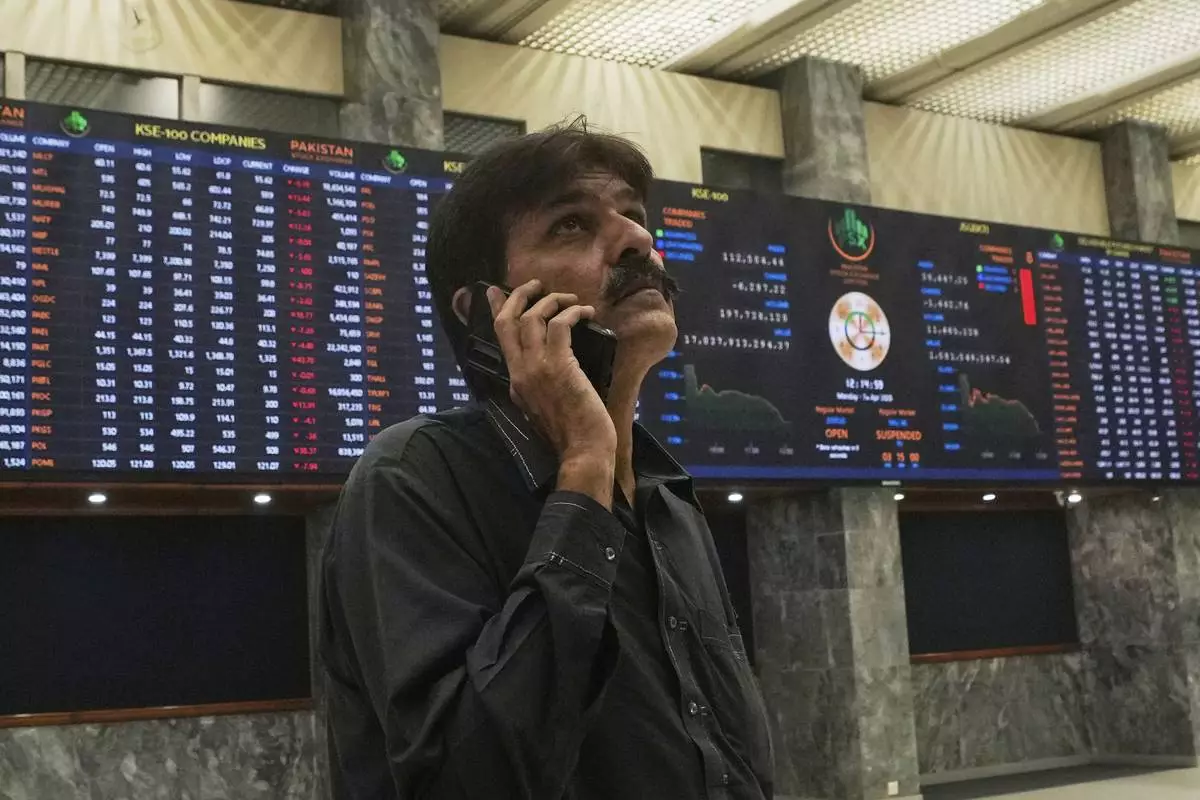
An investor looks on indexes and benchmark 100 index at the Pakistan Stock Exchange (PSE), in Karachi, Pakistan, Monday, April 7, 2025. (AP Photo/Fareed Khan)
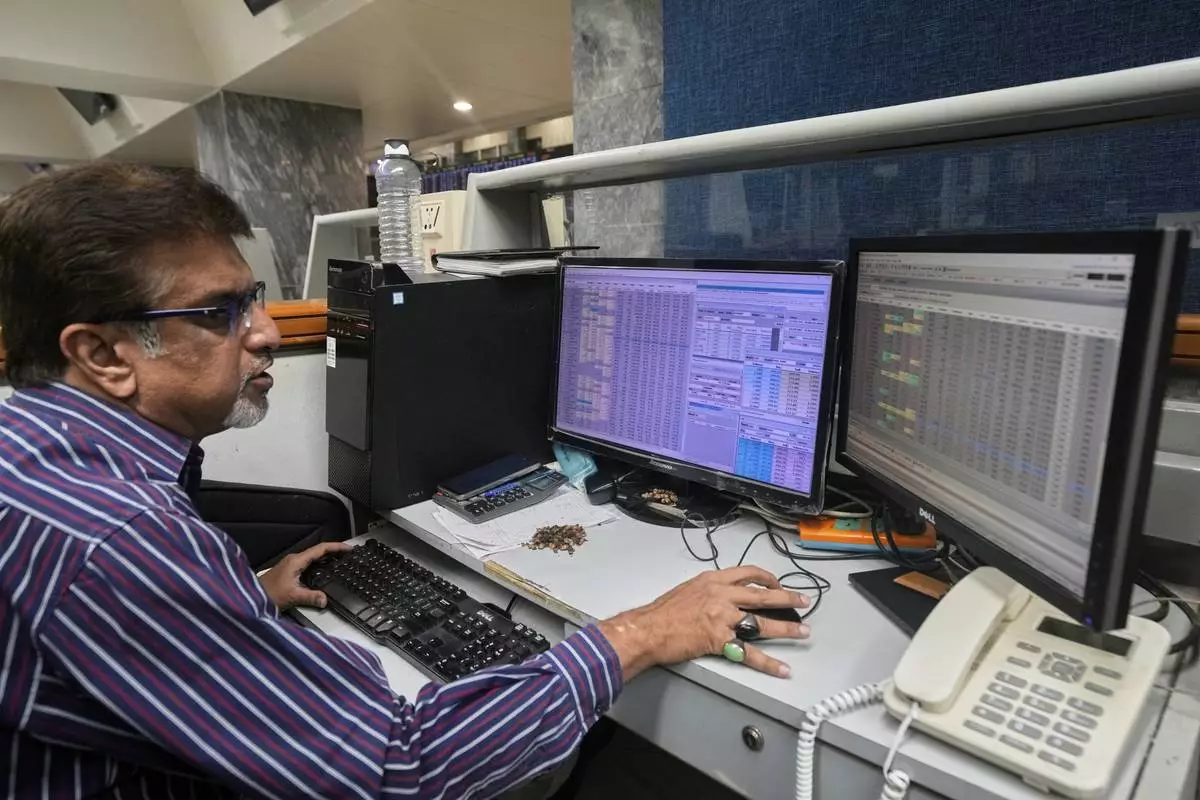
A stock broker checks indexes and benchmark 100 index at the Pakistan Stock Exchange (PSE), in Karachi, Pakistan, Monday, April 7, 2025. (AP Photo/Fareed Khan)
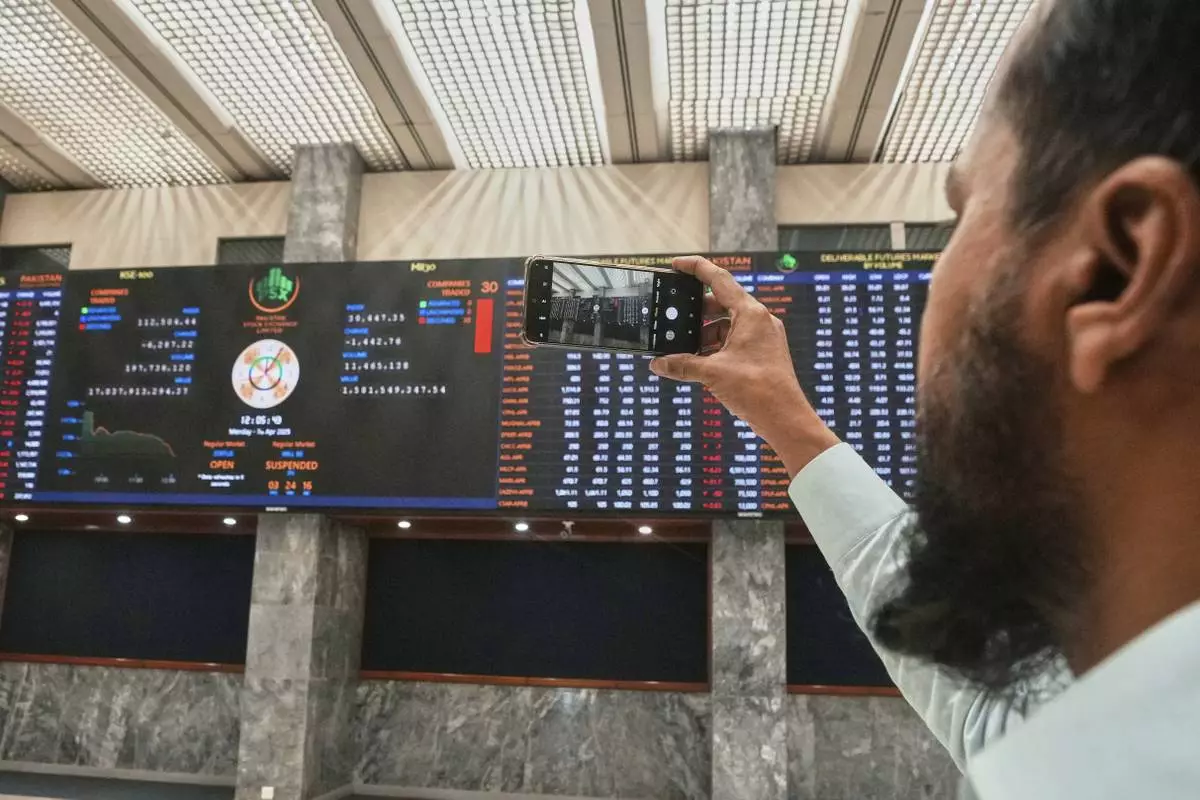
An investor takes a picture with a cell phone of indexes and benchmark 100 index at the Pakistan Stock Exchange (PSE), in Karachi, Pakistan, Monday, April 7, 2025. (AP Photo/Fareed Khan)















